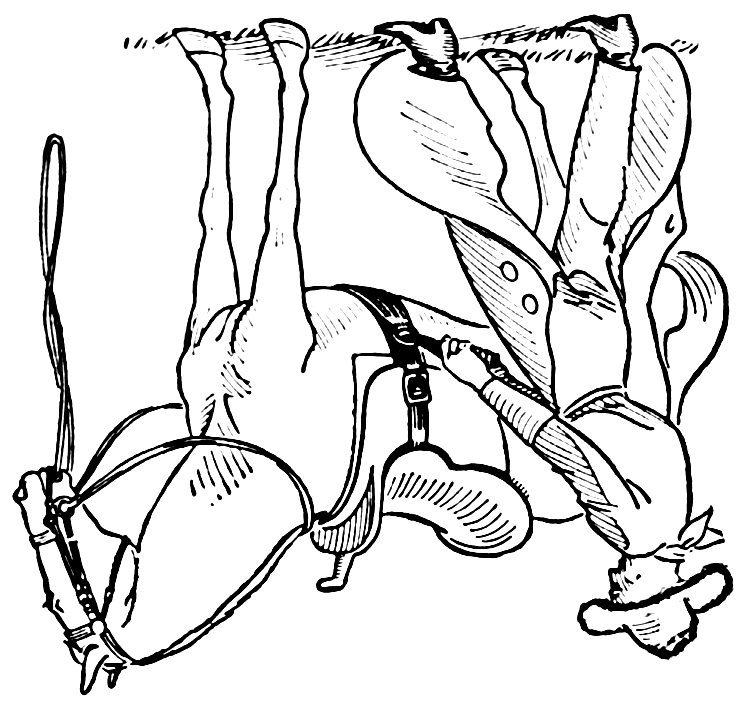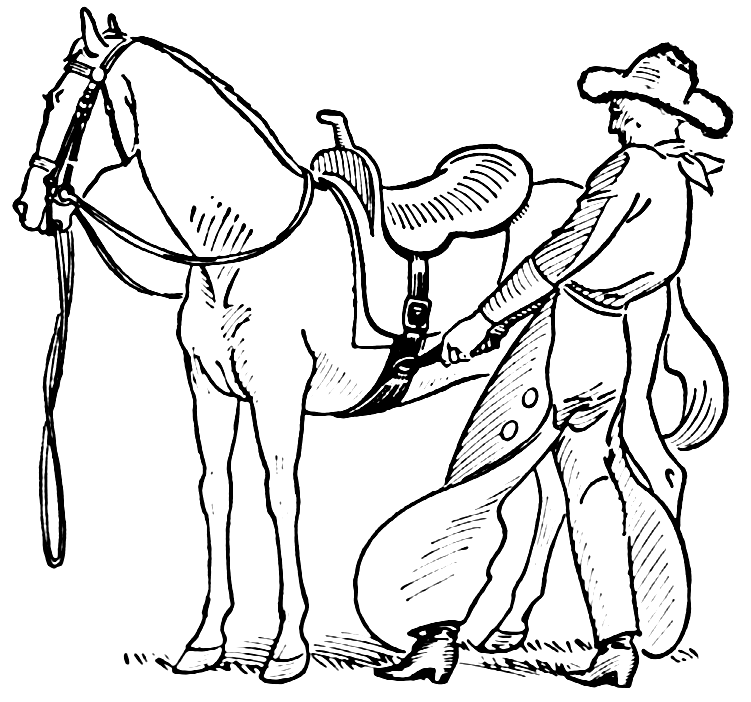Exercise 4.7 Upside-Down Drawing
Throughout this chapter, you learned how to use various observational skills to “see” the world. What happens when you can’t believe what you’re seeing? Sometimes your brain will tell you what something should look like, even if it’s not what it actually looks like. Many times your brain will not believe what you are seeing and you have to trust your observations.
For this exercise, you will draw an image of a subject that is upside-down. Since your brain is not quite sure what the subject looks like upside-down, it is now free to see the subject without any preconceived notions of what the image should look like.
Materials needed:
- pencil – HB
- eraser – white
- viewfinder
- wet or dry erasable marker
- paper – 1/4 of a page in your sketch book
Time to complete: 30 minutes. Use the full 30 minutes to work on this exercise.
Directions:
- In one of the four sections of your drawing pad, use the upside-down cowboy and horse image as your subject to draw. Your drawing will be in the same orientation as the image below, with the feet at the top of the drawing. The same image, but right side up, is at the bottom of the page. Do not scroll down and look at this image yet. It is only for reference when finished.
- Concentrate on what you are seeing in the image below. Use your newly found observational skills to concentrate on the lines that make up the subject. Try not to think about what the subject is – just draw what you see.
- When finished, do not work on it any further. Turn it right-side up to see how you did.
- How close did you get?

Below is the same image that is right-side up. Do not use this image and do not look at it until you have finished your drawing for this exercise.


